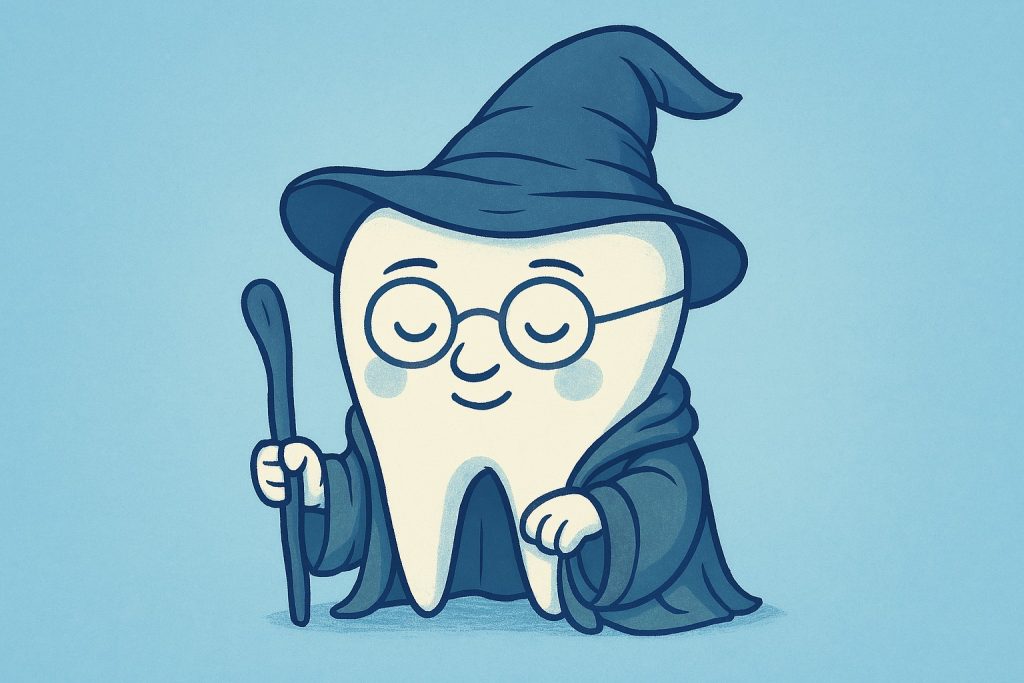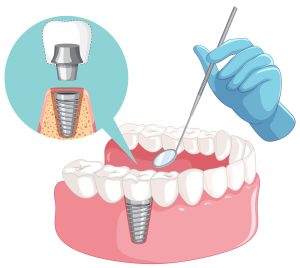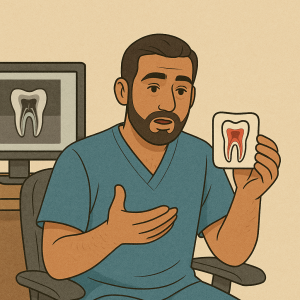Wisdom teeth — or third molars — are the most controversial teeth in the human mouth. Some people never have a problem with them. Others deal with pain, inflammation, or crowding as soon as they begin to erupt. So how do you know when they should be removed — and when they can stay? Let’s break it down from a medical point of view.
What Are Wisdom Teeth?
Wisdom teeth are the last molars on each side of the upper and lower jaws. They usually erupt between the ages of 17 and 25. While they can be functional and healthy in some cases, they often come in at the wrong angle, get stuck (impacted), or cause damage to nearby structures.
At True Smile Dental Centre in Abu Dhabi, our oral surgeons and dental therapists use advanced imaging to assess each patient’s third molars individually. We don’t remove wisdom teeth “just in case” — we follow international guidelines and evaluate clinical and radiographic findings carefully.
When Should Wisdom Teeth Be Removed?
There are several clear medical and surgical indications for wisdom tooth extraction. Ignoring them can lead to serious complications — both local and systemic.
1. Poor hygiene due to positioning
Wisdom teeth are often hard to clean properly because of their location. As a result, dental plaque accumulates, leading to:
- caries on the third molars;
- decay on adjacent second molars;
- gingival inflammation and periodontitis.
In True Smile Dental Centre, we frequently see patients who had healthy teeth but lost them due to the late complications of impacted or poorly positioned wisdom teeth.
2. Orthodontic indications
If you’re planning orthodontic treatment to correct crowding or move teeth forward, wisdom teeth may need to be removed.
- They can put pressure on front teeth, compromising the results of braces.
- Extraction creates space to move teeth safely and predictably.
Our orthodontists in Abu Dhabi work closely with oral surgeons to time extractions properly before or during active treatment.
3. Pericoronitis and soft tissue inflammation
When a wisdom tooth partially erupts, a flap of gum tissue called an operculum can form over it. This creates a pocket where bacteria and food get trapped — leading to pericoronitis (localized purulent inflammation).
Common symptoms include:
- swelling and pain around the jaw;
- difficulty chewing or opening the mouth;
- fever and lymph node enlargement.
In recurring or severe cases, removal is often the only long-term solution.
4. Trauma to adjacent tissues
Misaligned wisdom teeth can cause chronic trauma:
- to second molars, leading to root resorption;
- to soft tissues of the cheek or tongue, causing ulcers and repeated injury.
If trauma persists, extraction is recommended to prevent further complications.
When Can Wisdom Teeth Be Preserved?
Despite the frequent need for removal, not all wisdom teeth must go. Some third molars are perfectly positioned, healthy, and fully erupted.
A wisdom tooth may be preserved if:
- it is in full functional occlusion (chews properly);
- the tooth and surrounding tissues are healthy;
- it does not interfere with orthodontic or prosthetic plans;
- it is easy to clean and maintain.
Sometimes, a well-positioned wisdom tooth can even be used as a donor for autotransplantation — a technique where a tooth is moved to another site in the mouth.
Removal vs. Retention: Comparison Table
| Criterion | Remove | Keep |
| Tooth is impacted or misaligned | ✅ | ❌ |
| Causes pain, infection or damage | ✅ | ❌ |
| Hard to clean / prone to decay | ✅ | ❌ |
| Fully erupted, healthy, and functional | ❌ | ✅ |
| Fits into bite without affecting others | ❌ | ✅ |
| No interference with braces or implants | ❌ | ✅ |
What to Expect During Wisdom Tooth Removal
At True Smile Dental Centre in Abu Dhabi, our oral surgery team uses digital X-rays, 3D imaging, and minimally invasive techniques to ensure safe and efficient extractions. Local anesthesia or conscious sedation is offered for comfort. Most patients return to normal life in 2–5 days.
Postoperative care includes:
- ice packs and rest;
- soft diet for 1–2 days;
- good oral hygiene (no rinsing for 24h);
- follow-up with your surgeon.
Conclusion: Personalized, Not Universal
Wisdom teeth are not “bad” by definition. But leaving them unchecked can be risky. That’s why an individual approach is essential.
At True Smile Dental Centre in Abu Dhabi, we base every decision on diagnostic findings, treatment plans, and long-term oral health goals. Whether you need to extract or preserve — our team will guide you professionally.
Book your consultation today to evaluate your wisdom teeth and make the best decision for your smile.




